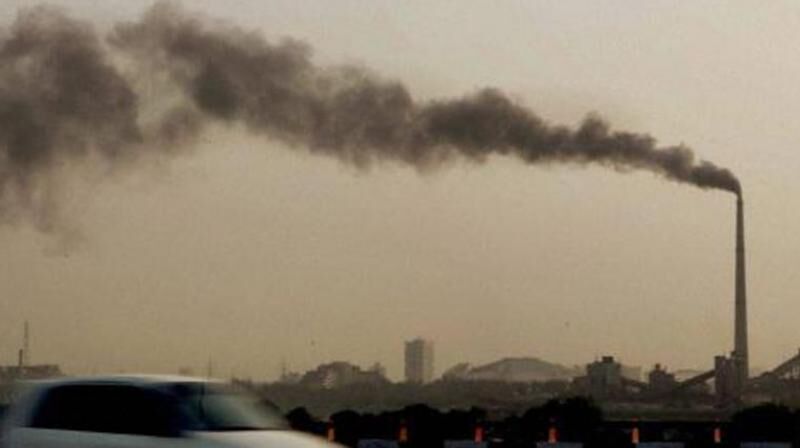Call for action

This week, the biggest-ever climate change survey yet conducted released its results. Spanning more than a million people in 50 countries, the 'People's Climate Vote' was a survey organised by the United Nations Development Programme in collaboration with Oxford University. Of the 1.22 million people who took part, some 5,50,000 were between the age group of 14-18. The most significant finding of the survey was that across all countries, 64 per cent of the surveyed participants expressed that they see climate change as a matter of urgency that concerned authorities must act on now. While there are variations from country to country and even with genders, significantly, age seemed to be a key factor. Nearly 70 per cent of those surveyed under the age of 18 view the climate change crisis as a global emergency as opposed to 58 per cent of those who were over the age of 60. Interestingly, the survey also showed the most popular policies for tackling climate change. While conservation of land resources and use of renewable energy were the most popular policies, change of diet to a largely plant-based one was the least popular. Following after a year of disasters that capped off the hottest decade on record, this survey is another indication of the growing concern of the global community over the state of climate change and the significant toll it has and will continue to impose on our lives.
Even at a time when a pandemic has taken over two million lives, devastated livelihoods, increased inequities and exposed gaps in our interconnected and unprepared systems, climate change is an undeniable dark cloud on the horizon. The call now is to build back better, to build back greener. Leaders have taken heed of this perception and 2020-21 has also been a period when more and more countries and even private organisations have come forth with not only pledges but possible action plans to remedy our dystopian relationship with our planet. As COP 26 has been postponed, an online international Climate Adaptation Summit was held on January 25, 2021, hosted by the Government of Netherlands. The stated purpose of the summit beyond providing a platform to showcase emerging climate change solutions was to sustain momentum through to COP 26. In the short term, the summit was meant to provide a spotlight to the problem of smallholding farmers not having the required investment to adapt to climate change effects on food production. At a time when the pandemic has threatened the food security of many millions, this summit is both timely and absolutely necessary. The summit saw a bracing speech by Argentine President Alberto Fernandez that called for greater commitment by developed nations to provide technical and financial resources to the global fight against climate change. He also stated that even though Argentina was a developing country, its emissions mitigation plan for 2030 was more ambitious than the one it committed to in 2015. Considering that the usual contention between developed and developing nations regarding climate change is the difference of opinion on what differentiated responsibility exactly curtails, Argentina's pledge is a significant detractor from the usual trend of shifting responsibility.
PM Modi too spoke at the summit and highlighted India's action plan as part of the 2030 commitment. The significant highlights included the target of setting up 450 gigawatts of renewable energy capacity by 2030, providing clean cooking fuel, restoration of 26 million hectares of degraded land and provision of piped water to 64 million households. The PM spoke of the need for greater commitment to shared action globally, highlighting the role of bodies like the International Solar Alliance. His speech came a few short hours after the Global Climate Risk Index for 2021 listed India as among the top ten most affected countries.
Finally, there was the much-publicised return of the US to the fold of the Paris Climate Accord. Speaking at the event a week after Biden signed an order to re-enter the agreement, US Climate Change Envoy John Kerry promised that the US was back with a bang. While he gave no details, he promised that the US was ready to make significant investments in the fight against climate change. This follows a flurry of executive orders that have been signed by Biden to kick start America's attempt to scientifically approach climate change, including a recently announced temporary suspension of new oil and gas leasing on US Federal lands and waters. While major domestic pushback is expected against Biden's policies, they add to the hope that 2021 will be a year when the fight against climate change can begin.
Of course, it's not all good news. At a time when the deforestation of the Amazon has hit historic highs, the Bolsonaro government has proposed the smallest environmental protection budget for Brazil in the last 13 years. This is just one of the many factors that complicate a truly global effort to combat climate change. The hope as may have expressed may lie in the fact that much like the pandemic, the climate change crisis is now finally eliciting a collective sense of panic and urgency that unless we act together, the worst is still ahead of us.



